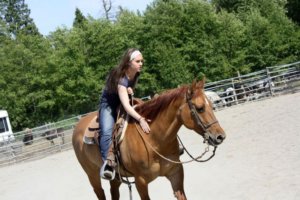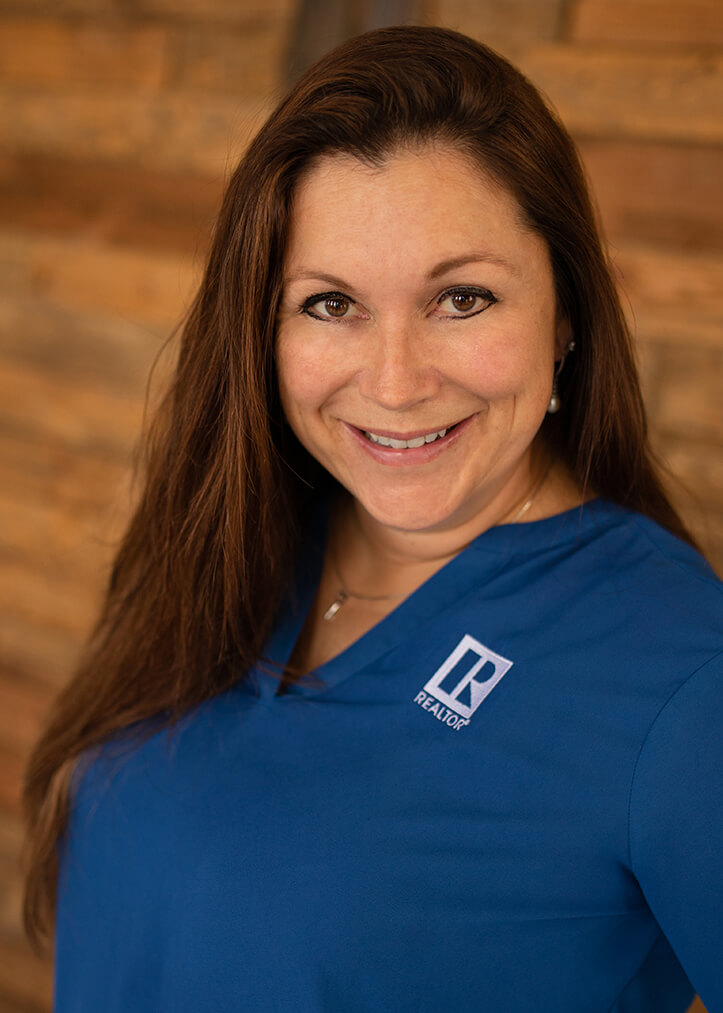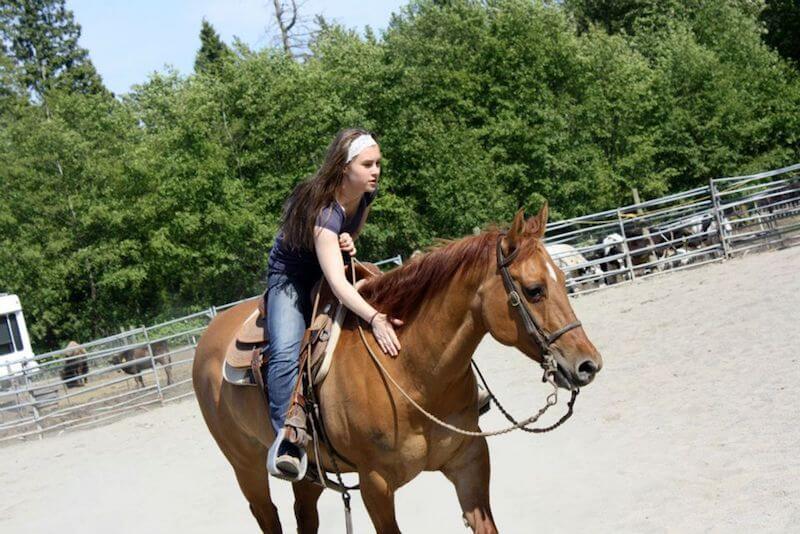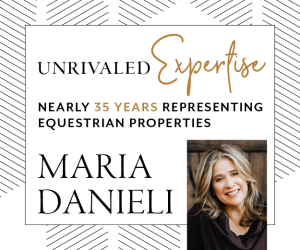Keep it Simple to Have a Happy Horse
by Allison Trimble
“I rarely have met a horse with a problem of their own in my life, but I have met many horses with a people problem. Are there any tips on retraining people to get in tune with the horse they love?” Elizabeth Cameron
This is one of the best questions I have ever been asked. It cuts right to the most common issue in horse training: learning while training. For the most part, the people that I instruct ride and train their own horses. This is a tall order and often equals a case of the blind leading the blind, resulting in frustration, setbacks and confused, cranky horses. At times it can seem like a hopeless situation, but there are things you can do to make it a more positive experience.
When I look back at the experience of training my first couple of futurity horses, I cringe at what those poor beasts had to tolerate. However, those first horses are some of my best loved lesson horses today. Horses are amazing creatures because of their willingness to accept a leader and there is an astonishing consistency among the horse/rider teams attending my lessons and clinics. For the most part, if the horses are able to be ridden, even if they aren’t performing as well as they could, they are typically very tolerant and kind animals. If they weren’t the owners wouldn’t be able to even swing a leg over them. These situations could be improved greatly, however, just by more understanding on the part of the rider and in changing the program. These are a few of the things that I think are crucial in improving a horse and rider relationship.
Education is key, but simplicity is king. I have seen so many enthusiastic horse people attend every clinic that comes to town. They adhere to the belief that they can take something useful away from every trainer. What may be forgotten is that horses thrive in a consistent environment. Successful programs, though they may differ in important ways, have a consistent philosophy throughout. So, if a person takes away this from one program, and that from another, they often will be based on very different philosophies. Your horse may end up disjointed and confused. A willingness to learn is admirable, but inconsistency is never good. Attend all the clinics you want, but use them as information to help define your personal philosophy. After you have a handle on what that is, find a trainer who can help you and is in agreement.
Think. Do not attempt to train your horse to do something if you don’t understand the necessary steps. Take the time to dissect the task on the ground before you jump in the saddle. If you can’t clearly outline desired outcome and the steps of asking, enforcing, and release/reward then don’t attempt the maneuver.
Be clear and concise. Make sure that your request is clear, beginning with a soft initial cue. Many times horses are hard and resistant because we are. Make sure your cues are always the same and that you enforce them every time you ask for them. It is quite common for a horse to be confused and the rider isn’t even aware they are asking anything. You are training or untraining your horse every moment you have contact with them, not only when you are focused on “training.” Be conscious of what you are doing at all times and video yourself if need be. Most people’s biggest issue is something they don’t even know they do.

Don’t over-train. Warm your horse up in a stress free environment, train on something you can stay focused on until you get realistic improvement and then cool down with low pressure. People can want to improve so badly that they over ride, making the horse resent its job and working against the end goal. When all else fails, pet your horse. People can get so focused on doing the “right” thing that they forget to pet or connect with their horse. Many shortcomings can be forgiven if a horse enjoys the process: pet them as a thank you for tolerating all the mistakes you will have to make to become the horseman you want to be.
Published July 2012 Issue

Allison Trimble is a Realtor® specializing in equestrian properties, farm and ranch properties, and residential real estate. As a former horse trainer, and a current owner, breeder and non-pro competitor in cow horse and reining events, she combines her experience in the horse industry with her lifelong real estate expertise to guide her clients through the real estate process.
Learn more at www.coastalrealtywa.com






